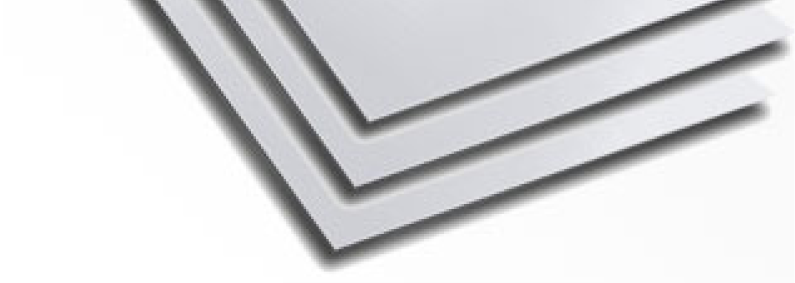
Alloy steel sheets and plates are engineered for strength, toughness, and resistance to wear, making them ideal for high-stress and high-temperature applications. Comprising a blend of carbon and additional elements like chromium, molybdenum, nickel, and manganese, alloy steel provides enhanced performance characteristics beyond traditional carbon steel. This versatility makes alloy steel sheets and plates suitable for demanding environments in industries such as oil and gas, petrochemical, power generation, automotive, and construction.
Our alloy steel sheets and plates are manufactured to meet industry standards such as ASTM, ASME, and EN, ensuring reliable performance and consistency. Available in a wide range of grades and thicknesses, they provide a durable solution for applications requiring high strength and resistance to corrosion, oxidation, and abrasion.
- Enhanced Strength and Toughness: Alloy steel’s added elements provide increased strength and toughness, allowing it to withstand high-stress applications in construction, machinery, and manufacturing.
- High Temperature and Pressure Resistance: Alloy steel is ideal for applications involving extreme heat and pressure, such as in boilers, pressure vessels, and turbines.
- Corrosion and Oxidation Resistance: Alloy steel plates can resist oxidation and corrosion, especially in grades containing chromium and molybdenum, making them suitable for harsh environments.
- Wear Resistance: Certain grades of alloy steel are designed for superior wear resistance, extending their lifespan in abrasive environments, including mining and industrial equipment.
- Versatile Applications: With their unique properties, alloy steel sheets and plates can be used in structural, mechanical, and high-temperature applications across various industries.
- Chromium-Molybdenum Alloy Steel Plates: Known for their excellent high-temperature strength, chromium-molybdenum plates are widely used in pressure vessels, boilers, and structural applications.
- Nickel Alloy Steel Plates: Nickel content in alloy steel improves corrosion resistance and toughness, making it ideal for cryogenic applications, pressure vessels, and marine environments.
- High-Strength Low-Alloy (HSLA) Steel Plates: HSLA plates are lightweight yet strong, providing enhanced durability and flexibility in construction and infrastructure applications.
- Abrasion-Resistant Alloy Steel Plates: These plates are specially designed for environments with heavy wear, such as mining, earthmoving, and material handling.
- Quenched and Tempered Alloy Steel Plates: This type of alloy steel undergoes heat treatment to increase hardness and toughness, making it suitable for machinery and structural applications.
Our alloy steel sheets and plates are available in various grades, each designed to meet specific application requirements:
- Grade A387 (Chromium-Molybdenum Alloy Steel): Known for high-temperature resistance, Grade A387 plates are ideal for pressure vessels and high-temperature environments, particularly in oil and gas applications.
- Grade 4140 and 4340 (Chromium-Molybdenum): These grades offer high toughness, strength, and fatigue resistance, making them suitable for heavy-duty industrial applications, including shafts and gears.
- Grade 516 (Carbon-Manganese): Grade 516 steel plates are used in pressure vessels and boilers, where moderate strength and resistance to hydrogen-induced cracking are essential.
- Grade 8630 (Nickel-Chromium-Molybdenum): Commonly used in oil and gas applications, this alloy provides high strength and impact resistance, especially in colder temperatures.
- AR400 and AR500 (Abrasion Resistant): Designed for high wear resistance, these grades are ideal for applications in mining, material handling, and heavy machinery.
- Pressure Vessels and Boilers: Alloy steel plates with chromium-molybdenum content are commonly used in pressure vessels, boilers, and heat exchangers to withstand high temperatures and pressures.
- Oil and Gas Industry: Alloy steel’s corrosion and high-strength properties make it ideal for drilling equipment, pipelines, and storage tanks in oil and gas applications.
- Construction and Infrastructure: High-strength low-alloy steel plates are used in construction, bridges, and infrastructure projects for their lightweight yet durable properties.
- Mining and Material Handling Equipment: Abrasion-resistant alloy steel plates provide exceptional wear resistance, extending the lifespan of equipment used in mining, earthmoving, and material processing.
- Automotive and Heavy Machinery: Alloy steel’s toughness and durability make it suitable for critical automotive and machinery components, such as gears, shafts, and axles.
- Power Generation: Alloy steel plates are used in power plants, turbines, and industrial boilers, where resistance to heat and pressure is critical.
Our alloy steel sheets and plates undergo strict quality control and testing to ensure compliance with industry standards and specifications. Each product is tested for mechanical properties, corrosion resistance, and dimensional accuracy, ensuring it meets the specific needs of your project. Certifications and third-party inspections are available upon request for added assurance.
Alloy steel contains additional elements like chromium, molybdenum, and nickel, enhancing its strength, corrosion resistance, and high-temperature stability. Carbon steel primarily relies on carbon for strength and is less resistant to corrosion and high temperatures, making alloy steel better suited for demanding applications.
Yes, alloy steel plates, especially grades with chromium-molybdenum content (such as A387), offer excellent high-temperature resistance, making them ideal for boilers, pressure vessels, and other high-heat applications
Absolutely. We offer custom cut-to-size services and can provide alloy steel sheets and plates in the dimensions and shapes that best fit your application. Contact us to discuss your custom needs.

Products
Industry We Serve
- Oil & Gas industries
- Chemical process industries
- Pump and valve in high pressure component
- Food industries
- Pulp and paper industry
- Aerospace industry
- Power plant
- Mechanical component
- Sugar industry
- Cement industry
